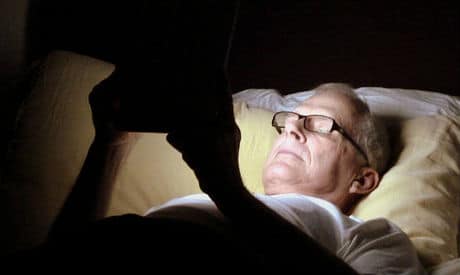
Do you use your tablet, laptop, or smartphone right up until you close your eyes and go to sleep? Do you have trouble getting to sleep, or remaining asleep throughout the night? Do you wake up in the morning feeling groggy and out of sorts? Do you see the connection I'm about to make?
Research has shown that using one of these devices before going to sleep can disrupt your bodies production of melatonin. Melatonin is a light-sensitive hormone that helps regulate your bodies circadian rhythm, which is your 24-hour cycle of physiological and behavioral process. When melatonin is rising in your blood, it can lower your body temperate and induce drowsiness. Typically this occurs at night. However when the production of melatonin is limited, it becomes tougher for individuals to fall asleep.
The Danger in Supressing Melatonin
Recent studies are now showing that just two hours of exposure to the brightness of a tablet or computer can suppress your bodies release of melatonin and ultimately delay sleep. If this delay becomes chronic and repetitive, it can lead to a disruption of your circadian cycle. The danger in this lies solely in the fact that prolonged exposure can inevitably lead to chronic sleep conditions. However while these lights may be disruptive for individuals trying to get to sleep, these same lights could prove to be beneficial to individuals in the morning.
Studies have also shown that a morning shot of light from either your tablet, laptop or smartphone can be used as light therapy. This light therapy can be used to significantly combat the effects of seasonal affective disorder. In the meantime however, avoiding your devices before bed time is imperative to developing and maintaining a proper sleep cycle. Adequate rest is important and can help prevent a variety of physiological and psychological issues from arising.
Developing a bed time routine that doesn't involve computer screens is the first step in that. And you know what doesn't have a computer screen? A good old fashioned book. I'm somewhat of an advocate for those.
Ryan Bisram is a freelance writer and editor with a degree in English. He is now a health promoter and actively contributes to Naturally Savvy.
Photo Credit: krossbow










